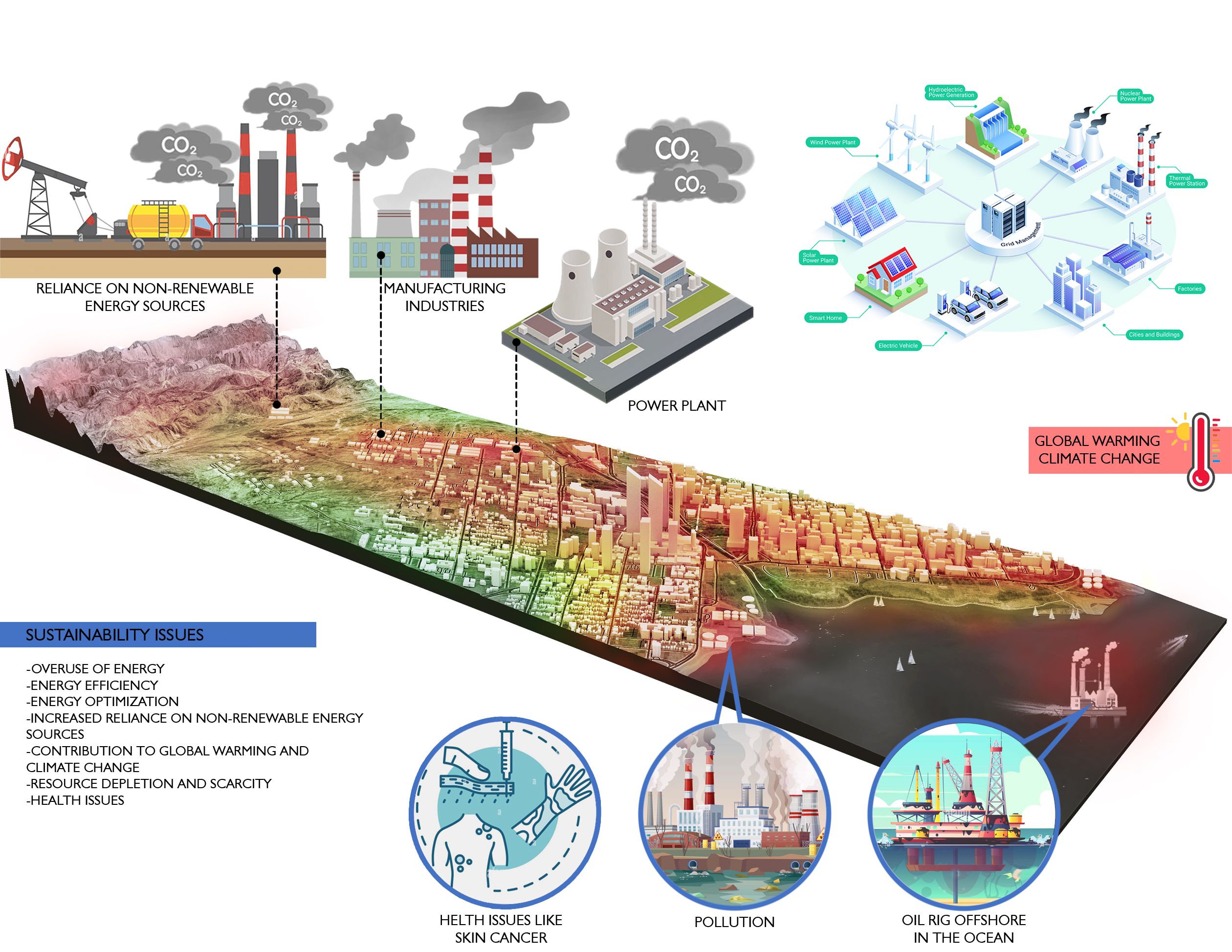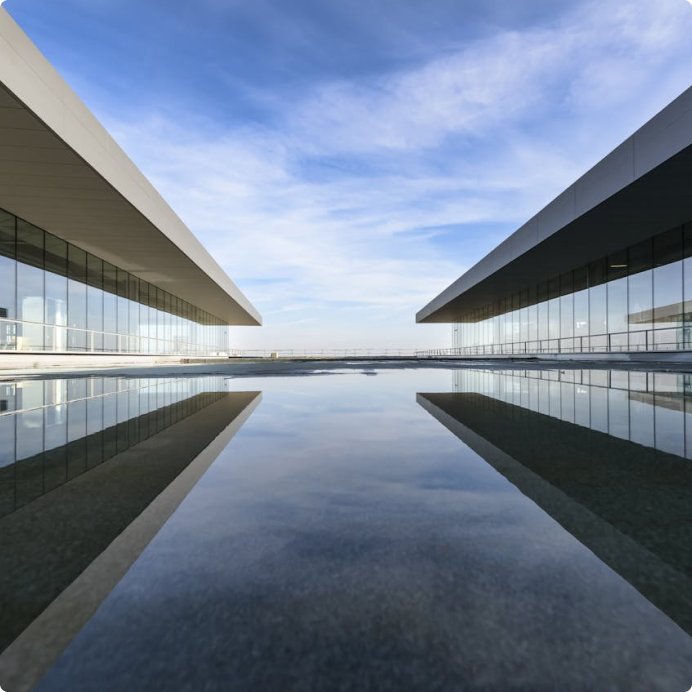PILLARS
ENERGY EFFICIENCY

Climate Change Impact on Energy
Analyzing how climate change affects energy consumption and the performance of building structures.
Energy Transition
Focusing on the shift from traditional energy sources to cleaner, more sustainable energy alternatives.
Modeling and Optimization
Utilizing advanced modeling techniques to assess energy efficiency measures and optimize energy systems in buildings.
HOME • RESEARCH • PILLARS • ENERGY EFFICIENCY
Energy Efficiency in Action:
Interactive Urban Model
Explore our interactive model showcasing key projects under the Energy Efficiency pillar. The model demonstrates the integration of energy-efficient systems, renewable energy technologies, and demand response strategies in the built environment. It provides a comprehensive view of how energy consumption and greenhouse gas emissions can be reduced through innovative design and advanced technologies.

Goals
Reduce Building Energy Demand
Implement strategies to reduce energy consumption in buildings through efficient design, advanced HVAC systems, and optimized insulation materials.
Integrate Renewable Energy
Promote the use of on-site renewable energy systems, such as solar photovoltaics, to reduce reliance on fossil fuels and lower greenhouse gas emissions.
Improve Energy Efficiency
Enhance energy efficiency in building operations by integrating smart controls, demand response strategies, and passive design features.
Climate Resilience
Analyze and mitigate the impact of climate change on building energy demand, focusing on strategies to manage increased cooling needs in hotter climates.
Policy Support for Energy Transition
Provide data-driven insights to support energy transition policies that promote the use of clean energy technologies and improve overall energy management in urban environments.

Climate Change Implications on Energy and the Built Environment
This project explores how climate change affects energy consumption in buildings, focusing on future increases in cooling demand in the GCC region and evaluating potential mitigation measures.

Efficiency of Green Roofs and Green Walls as Climate Change Mitigation Measures in Extreme Climate
Analyzes the potential for green roofs and walls to reduce building energy demand in extreme climates, particularly in Qatar, and assesses their effectiveness in mitigating climate change impacts.

Methodological Framework of System Dynamics in Energy Use
Develops a system dynamics framework to evaluate energy-efficiency policies and assess the potential for energy savings in building sector.

High-Resolution Household Load Profiling and Evaluation of Rooftop PV Systems
Monitors power demand in residential buildings and evaluates the economic feasibility of rooftop photovoltaic (PV) systems.

A Novel BIPV Reconfiguration Algorithm for Maximum Power Generation Under Partial Shading
Investigates the optimization of building-integrated photovoltaic (BIPV) systems, proposing methods to mitigate the effects of partial shading in urban environments.

Photovoltaics Advanced Thermal Management System Using Nanofluid and Microporous Surface
Explores advanced thermal management systems for concentrated photovoltaics (CPV) to improve energy generation efficiency and reduce system costs.

Solar-Driven Multi-Effect Distillation
Integrates solar thermal energy with desalination processes, optimizing energy use in water production and reducing reliance on fossil fuels.

Evaluating the Environmental and Economic Benefits of Energy Efficiency Measures in Buildings
Performs an environmental life-cycle assessment of retrofitting existing buildings to improve thermal performance and reduce energy consumption.

Climate Change Impacts on a Polygeneration System Designed for a Small Community
Proposes a polygeneration system combining solar power, air conditioning, and desalination for small communities, assessing the system’s performance under changing climate conditions.

Energy Storage Solutions for Residential Buildings
Explores the feasibility and economic viability of energy storage systems for residential buildings in the GCC region, focusing on their role in improving energy efficiency and reducing peak demand.


Achievements

Best Oral Presentation: Awarded at the 6th International Conference on Energy and Environment Research (ICEER) for the presentation titled "Climate Change Implications for the Environmental Performance of Residential Building Energy Use: The Case of Qatar."

Best Green Sustainable Initiative Award: Presented by the National Program for Conservation and Energy Efficiency (Tarsheed) for work on climate change implications for the built environment.

Qatar Sustainability Award—TADMUR Special Award: Granted by the Qatar Green Building Council (QGBC) for contributions to understanding the impact of climate change on building energy performance.

Dr. Mohamed Alhaj
Urban Lab Researcher




